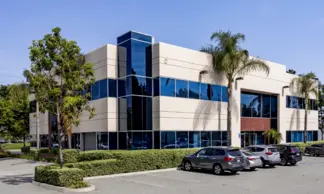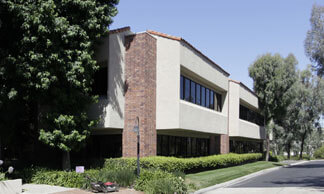Call us today(714) 994-4900
Lake Forest Probate Lawyer

Lake Forest Probate Attorney
Becoming an estate executor usually comes with the unfortunate passing of a loved one. It can be difficult for some people to experience both at the same time. Working with a probate attorney can help relieve some of the burden by completing some of the more challenging tasks of probate. If you’re interested in a smooth probate process, contact a Lake Forest probate lawyer today.
Expect the Unexpected
The legal team at Sakamoto & Ruelas, APC, has over 25 years of experience assisting individuals with estate planning, probate, trusts, and more. They are committed to providing personalized solutions for each of the clients they serve and understand how important advanced planning can be for a family’s well-being. To learn more about how Sakamoto & Ruelas, APC can help you and your family, contact us today.
What Is Probate?
When a person creates a will, they expect that their assets will be distributed according to their wishes that are stated in the will. The probate process exists to make sure this takes place. To assist with this process, the court usually appoints an executor to manage the will if this person is not specifically stated in the will.
Why Do I Need an Attorney?
Sometimes, an attorney is not required for probate, but attempting to complete the process alone can result in errors that delay the process and add unnecessary expenses. An experienced probate attorney can:
- Collect important documents like life insurance, tax documents, and more
- Determining what taxes might be owed on behalf of the estate
- Creating a checking account for the estate and using it to pay debts and beneficiaries
- Establishing the value of the estate’s assets, including appraising property values
- Filing court documents
The Probate Process
Probate is a heavily regulated and structured process. This means that there is usually a uniform sequence of events that take place in the case that probate occurs. Most probate cases include the following items:
- Probate Petition: In order to start the process, the executor of the estate must file a Petition. This is a legal document that must be filed with the court. To successfully file this document, there are additional requirements for supplementary documents like the death certificate and a copy of the will.
- Giving Notice: Any person or entity mentioned in the will or any legal heir, whether in the will or not, must be formally notified by the executor. Creditors must also be notified if there are specific individuals to whom the deceased person owed money. Finally, an official notice in a newspaper must be published for any creditor that might not be known by the estate so that they can receive any money they are owed.
- Initial Hearing: After the petition is filed, the court will usually officially name the executor in the hearing. If the executor is not explicitly stated in the will, another person is appointed. In many cases, it is a relative or close friend of the deceased.
- Asset Inventory: Any asset that is not in a trust or does not have a beneficiary (like retirement accounts or life insurance policies) already assigned to it must be inventoried to calculate the total value of the estate. After this is accomplished, money must be collected from those who owe money to the deceased. Finally, the executor will turn any assets into cash to pay beneficiaries.
- Taxes: In many instances, the deceased person must pay taxes for their income, property, or both. There are specific forms that must be filed if someone is doing taxes on a deceased person’s behalf.
- Estate Plan: Once debts are paid and taxes are filed, a report stating the details of the deceased person’s estate must be composed and submitted to the court, including how the remaining assets will be transferred to the beneficiaries. The court will review this plan to check for fraud and then approve it if appropriate.
- Asset Distribution: If there are no challenges or issues with the will, then at this point, the assets are given to beneficiaries or distributed according to how they were designated in the will.
This process is fairly straightforward, but there are issues that can come up with any probate. That’s why it is so important to speak to a probate lawyer to make sure each step is completed correctly.
Which Types of Estates Need Probate?
While many estates in Lake Forest, CA do need probate, some do not, including:
- Living Trusts: If the individual created a trust while they were still alive, it is commonly referred to as a “living trust.” The assets held in a living trust do not need to go through probate in order to be distributed once the creator dies. If the individual had other assets not in the trust, however, these still might need to go through probate.
- Specific Accounts: Accounts that have specific beneficiaries listed do not need to go through probate. These types of accounts typically include things like:
- Life Insurance Policies
- Payable-on-death (POD) bank accounts
- Retirement accounts
- Transfers for Spouses: While this process technically involves probate, it is usually much faster than the traditional method. A Spousal Property Petition can be used if a spouse wants to transfer their assets to the other spouse after their death.
- Small Estates: In California, a “small estate” is defined as one that is worth less than $184,500 as of 2022. Even if an individual was worth more than this amount, there are several types of assets that do not go into this calculation. If an estate qualifies as small, then there are several options for claiming personal property or real estate that do not require traditional probate.
To determine whether an individual’s estate should go through the traditional probate process or not, contact an estate planning attorney with experience in probate cases.
What Is Expected of Executors?
Executors are beholden to certain rules to make sure that they process a person’s estate correctly. In order to follow probate rules, an executor must:
- Keep any of the estate’s assets separate from their own personal assets
- Maintain notes and records on the probate process to develop a report to submit to the court before assets are distributed.
- Collaborate with individuals both mentioned and not mentioned in the will, like creditors, debtors, and beneficiaries, to pay them and receive payments on time.
- Open financial accounts and work with financial professionals like accountants and money managers to pay creditors and beneficiaries and make sure all taxes are paid before the estate is closed
Sakamoto & Ruelas, APC, has experience composing many different types of legal and financial documents related to probate. We can help you navigate the complicated parts of probate to prevent errors and make sure the desires of the deceased are carried out effectively.
FAQs
Q: Who Pays for a Probate Lawyer in California?
A: In most cases, the estate of the deceased person pays for a probate lawyer. There are several different types of probate an individual can do, each requiring differing amounts of money to be paid upfront. Once the executor completes probate, they can reimburse themselves from the estate’s checking account before closing the account. Executors also get paid for the extra work it takes to manage and close out an estate, which can vary depending on the estate’s value.
Q: Do I Need a Lawyer for Probate in California?
A: In many cases, you do not need a lawyer for probate in California, especially for estates worth less than $184,500. If the estate is large, complex, or has a lot of claims or disputes from creditors or beneficiaries, however, an attorney is recommended. Once hired, they can help gather relevant documents, calculate the estate’s value, and assist with challenges or will disputes. Without legal counsel in Lake Forest, an executor is susceptible to costly mistakes.
Q: How Long Does It Take to Settle Probate in California?
A: Most probate cases settle within six months to nine months, but some estates in California can have a different timetable. Due to recent trends and the sheer number of people living in California, a Lake Forest probate could take from eighteen months to two years to resolve. If the estate is smaller, it could be settled in a shorter time frame. Probate tends to take longer if the will is contested or if there are a high number of open probate cases in the county.
Q: What Triggers Probate in California?
A: Probate is usually “triggered” if the estate is worth over $184,500, at least in California. This number does not include certain assets like life insurance policies, retirement accounts, any assets in a living trust, and some personal property. If it is determined that probate is needed for an estate, an executor is found either due to explicit mention of them in the will or appointed by a court. It’s the role of the executor to make sure the estate is closed properly.
Don’t Go Through Probate Alone
Probate is often complicated and can sometimes take several years to be fully resolved. It might take more time and work for people going through this process alone. A probate attorney can be a helpful partner to make sure documents are correctly filed, payments are made on time and to the right people, and any claims against the will are settled. For more information about probate and how it affects your situation, schedule a consultation with Sakamoto & Ruelas, APC.
Lake Forest
Practice Areas
Request a Consultation
Fields Marked With An ” *” Are Required
Sakamoto & Ruelas, APC
Secure Your Home, Family And Future. Plan Today.
Contact Us
Call Our Office At (714) 994-4900

Cerritos Office
Main Office
18115 Valley View Avenue
Suite 201
Cerritos, CA 90703
Phone: (714) 994-4900




